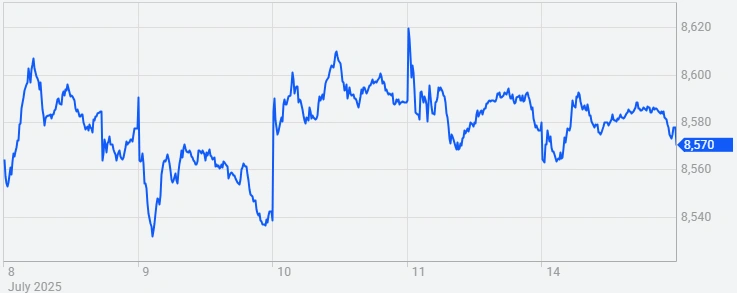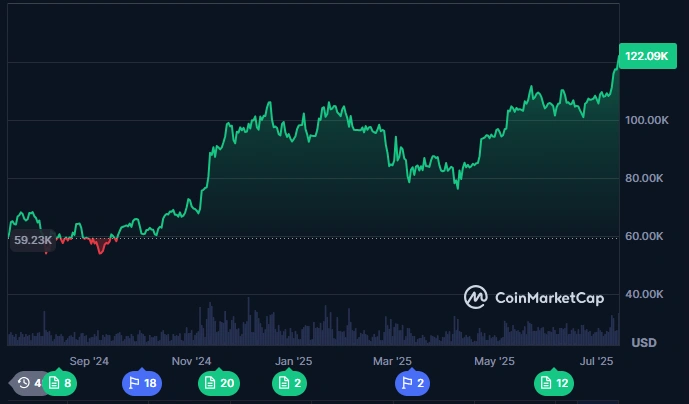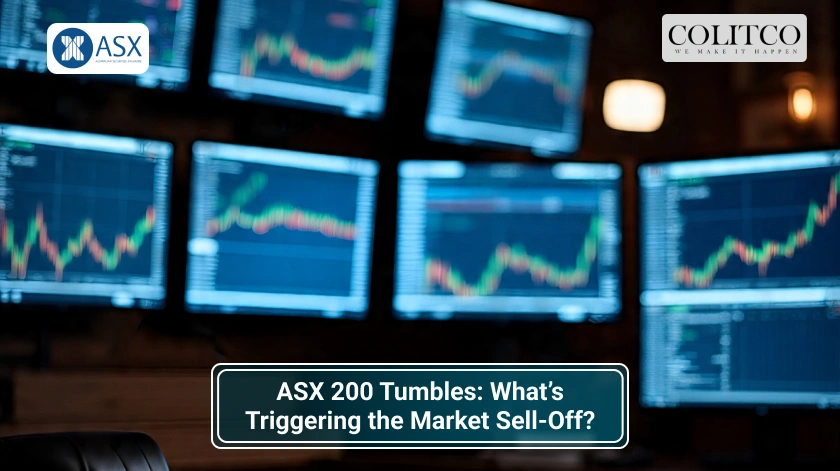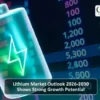The ASX 200 fried sell-off opened lower, reflecting mounting trade tensions globally. The drawdown was followed by the specification that there would be new tariffs imposed against EU and Mexican goods because of the announcement by President Donald Trump. The tariffs, commencing August 1, include a 30 per cent duty on imports of vehicles. The imposition of tariffs presented the risk of a sell-off in risk-sensitive sectors.
By midday, the S&P/ASX 200 slid 36.6 points or 0.46 per cent to 7944.8. The All Ordinaries declined 0.49 per cent to 8232.1. The fall came after Wall Street ended mixed on investors’ digesting the implications of an escalating trade tussle.
Technology and financials bore the brunt of the sell-down, with some miners standing as a buffer to further drags.

ASX 200 sees volatile trading in July, reflecting global uncertainty and sector-wide investor caution.
Can miners protect the index amid trade fears?
Miners indeed supported the market, aided by the surge in prices for iron ore and gold. BHP had climbed 1.2 per cent, while Rio Tinto was up 1.3 per cent. Iron ore is rallying almost 4 per cent to US$99.50 per tonne, almost at that critical US$100 mark.
Gold miners followed suit: with gold at US$3370 per ounce, Evolution was 1.9 per cent higher; Northern Star, 1.1 per cent; and Newmont, 1.4 per cent. Investors backed traditional safe havens, perhaps to hedge against volatility.
While banks and tech stumbled, mining and resource-related shares offered resilience, underscoring their importance in Australia’s trade-linked economy.
What role did corporate activity play in the session?
Abacus Storage King soared 5.8 per cent after a fresh takeover bid of A$1.65 a share was launched. Kiwi Nathan Kirsh’s Ki Group, along with US-based Public Storage, led this offer.
Just 14.7 per cent above previous offers, the latest offer signals an assertive interest in the Australian real estate investment space.
While general sentiment has remained cautious, stories of corporate M&A have helped mid-caps here and there and show that value can still be located in periods of downturn.
The $30 million defence investment announced by DroneShield proved to be another corporate highlight and helped push the shares up 1.9 per cent. Investors remain keen to follow stocks that benefit from sovereign security themes.
Trump tariffs have a ripple effect through key sectors
The tariff shock led by Trump impacted the local exporters and globally exposed sectors. Zip shares tanked 3.9 per cent; Appen shed 3.6 per cent, and Block dropped 5.3 per cent.
Major banks traded lower; Commonwealth Bank slipped 0.3 per cent; NAB was down 0.4 per cent; ANZ off 0.5 per cent. Meanwhile, the rate-sensitive stocks paused as we await minutes from this week’s RBA, with the next move being anything but clear.
So this fresh round of tariff escalations is exerting more pressure on the already struggling global trade flows.
Investors fear a return to retaliatory cycles, which could dampen export volumes and earnings.

ASX 200 bank stocks mixed, with Westpac and CBA down while NAB posts modest daily gains.
How are alternative assets performing?
Much over US$1 billion went into Bitcoin ETFs in a day, and a strong inflow pushed Bitcoin to touch an all-time high of US$120,000. The rise occurred notwithstanding geopolitical risks, indicating that speculative fervour remains alive and kicking.
While the rally in Bitcoin is uncorrelated with the ASX 200, it speaks of a bigger concern of investors preferring the latter non-sovereign, decentralised hedge during macro uncertainty.
Gold truly moved; the move towards defensive allocations is now in motion. With all the geopolitical heat rising, alongside inflation concerns, investors tend to seek cover in gold and cryptocurrencies, which now seem to be avenues for insurance.

Also Read: ASX Morning Wrap: Tariff Tensions, Silver Surge, and Corporate Updates Shape Market Sentiment
Investors turn cautious, watching global policy risks
There is rising caution among investors entering the second half of July. All eyes will be on volatility, which appears set to be elevated with the Trump tariffs coming into force on August 1.
Mining and energy are still favoured due to strong commodity demand and pricing. Conversely, tech, banking and retail might remain under pressure, in light of global policy risks and dips in consumer confidence.
Abacus’ deal is evidence that takeovers and sector rotation still provide pockets of opportunity. Nevertheless, risk appetite is subdued at this point, with many institutions seemingly preferring to sit on cash or defensive equity names.
Investors should consider a barbell strategy—exposure to strong commodity-linked names and select growth assets. Defensive positions, including utilities and gold, will likely remain supported.
Until more clarity emerges on U.S. policy and China’s growth, the ASX market dip in July 2025 is likely to persist.












